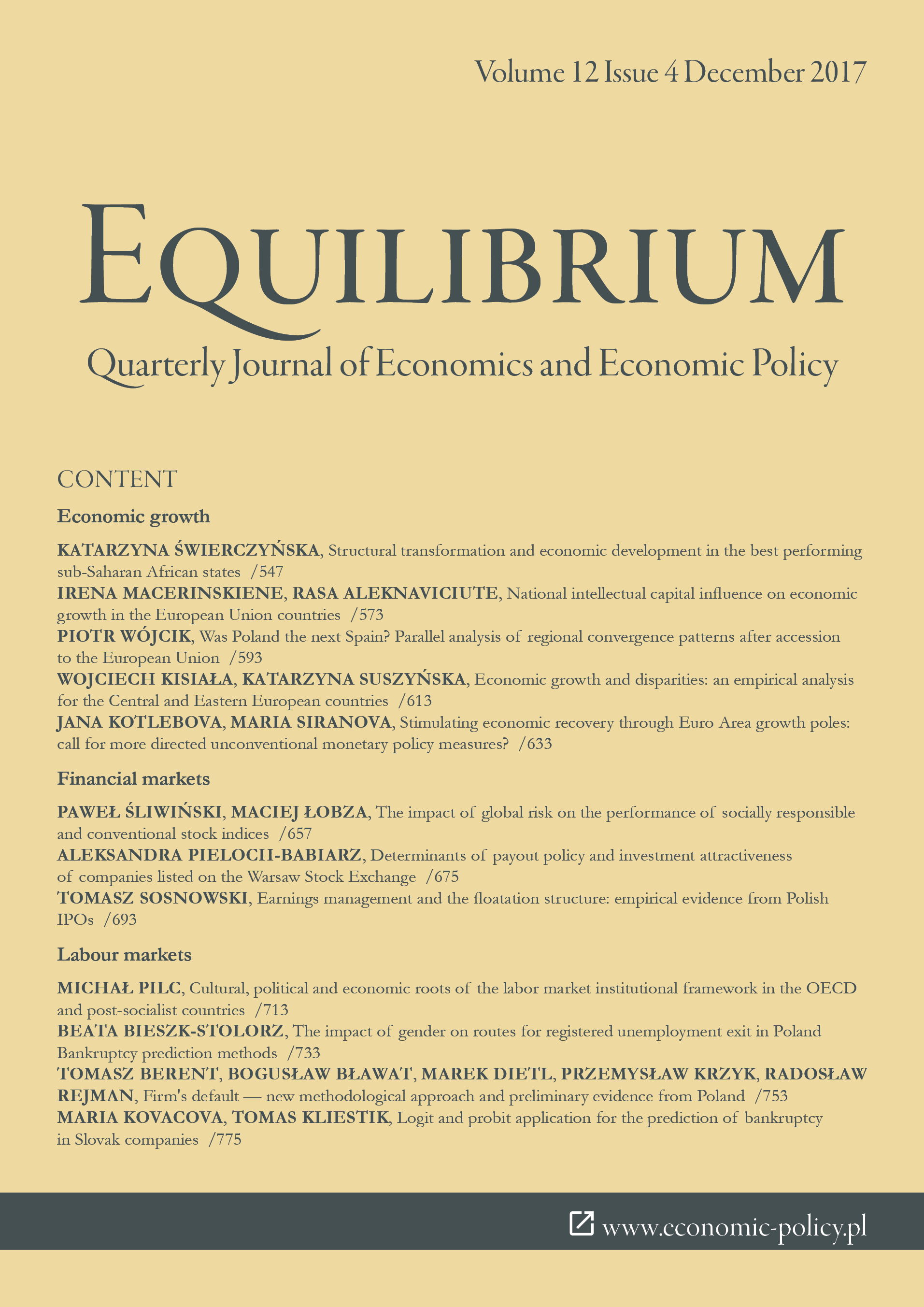The impact of global risk on the performance of socially responsible and conventional stock indices
The impact of global risk on the performance of socially responsible and conventional stock indices
Author(s): Paweł Śliwiński, Maciej ŁobzaSubject(s): Economy, Business Economy / Management, Evaluation research, Financial Markets
Published by: Instytut Badań Gospodarczych
Keywords: socially responsible investments (SRI); socially responsible indices; investment performance; financial global risk; VIX;
Summary/Abstract: In the last decades social responsible investment has evolved into an important and influential investment class. What supports then the development of SRI? The neoclassical approach suggests that the attractiveness of investment should result from the risk-return relationship that is satisfying for the investor. However, the performance analysis of SRI vs. conventional investment, conducted in numerous research papers, often delivers contradictory conclusions. If financial factors could not explain the phenomenon of SRI, nonfinancial factors may have played a decisive role in the formation of modern SRI market. Purpose of the article: The purpose of this paper is to analyze financial investment performance of socially responsible vs. respective conventional indices in the periods of high, low and unidentified global risk. Therefore, a following research hypothesis was verified: SR indices perform financially better in high-risk periods than in low-risk periods. This hypothesis is justified by the assumption that, when selecting SRI, investors go by a longer investment horizon than they do when selecting other investments, not subject to such verification. Methods: Among SR indices, we chose three to compare them with their conventional counterparts: DJSI US vs. DJITR (USA), DJSI Korea vs. KOSPI (South Korea) and Respect Index vs. WIG20TR (Poland). The VIX index was used as the global measure of risk aversion. To measure the relative performance of SR and conventional indices in different risk periods, we applied risk-adjusted performance measures, including RSD, Sharpe and Treynor ratios, traditional and asymmetrical CAPM. Findings & Value added: The research shows that conventional and socially responsible indices do not differ statistically in terms of risk and return irrespective of global risk. Our research confirms that the rising, socially responsible, investment market cannot be analyzed only through the prism of simplified rational choices. Additionally, it should be analyzed in terms of moral philosophy and behavioral economics, including the psycho-social features of investors.
Journal: Equilibrium. Quarterly Journal of Economics and Economic Policy
- Issue Year: 12/2017
- Issue No: 4
- Page Range: 657-674
- Page Count: 18
- Language: English

